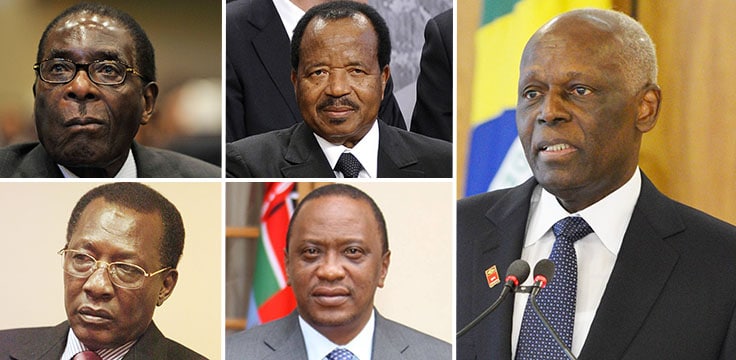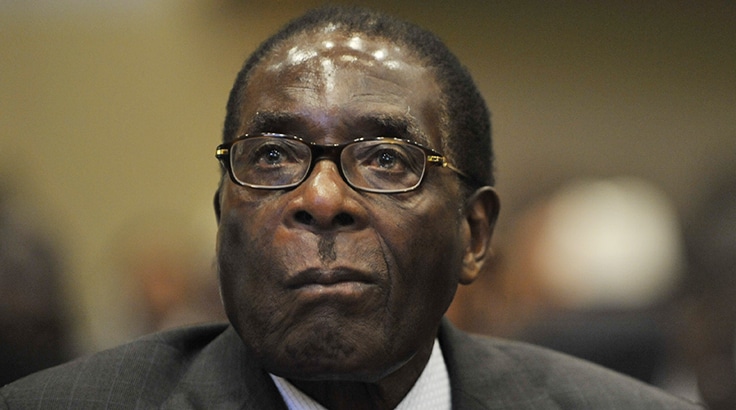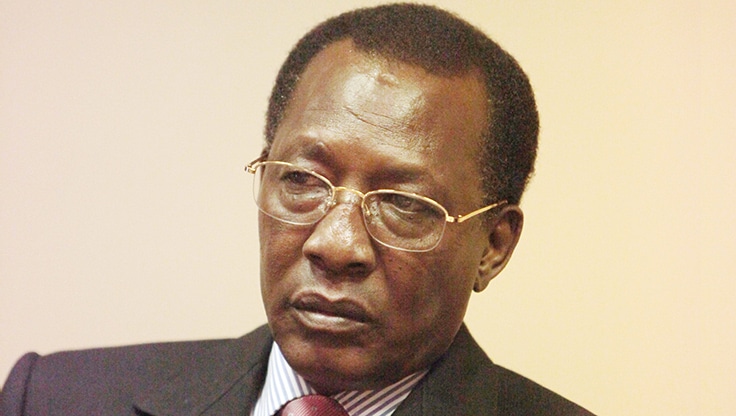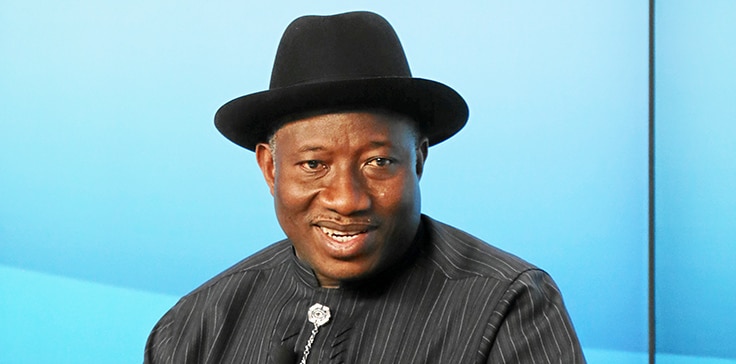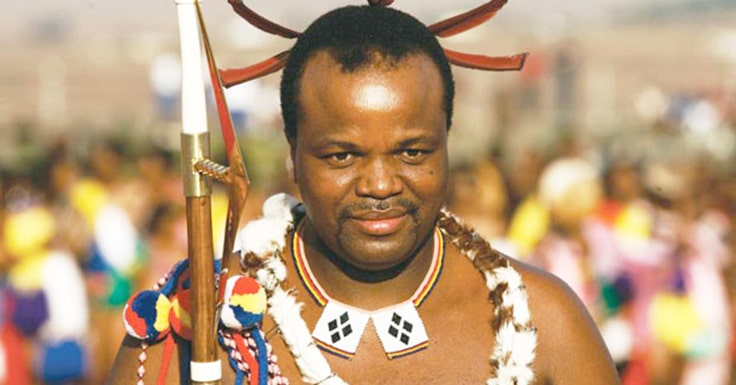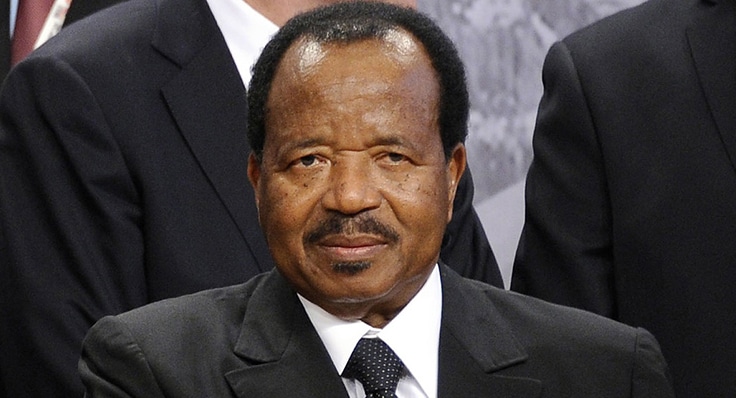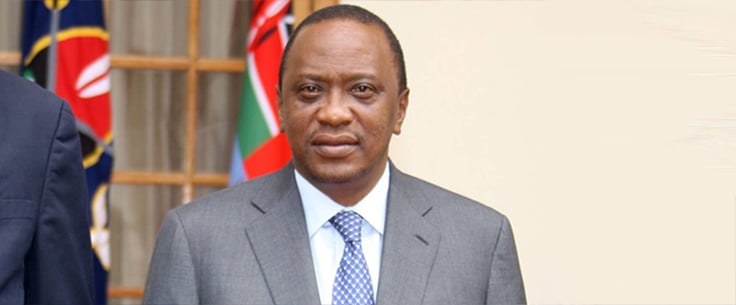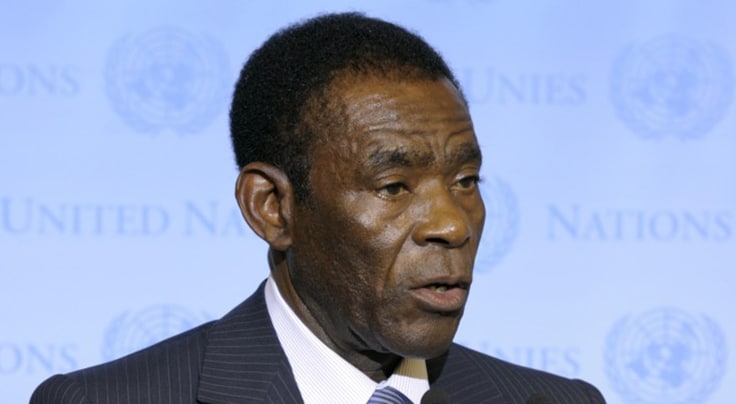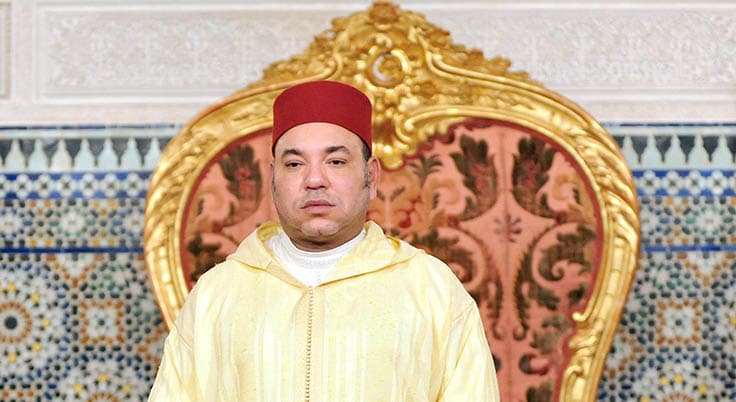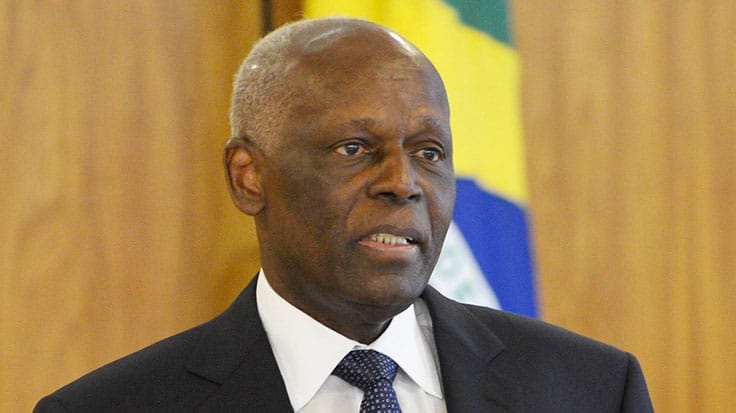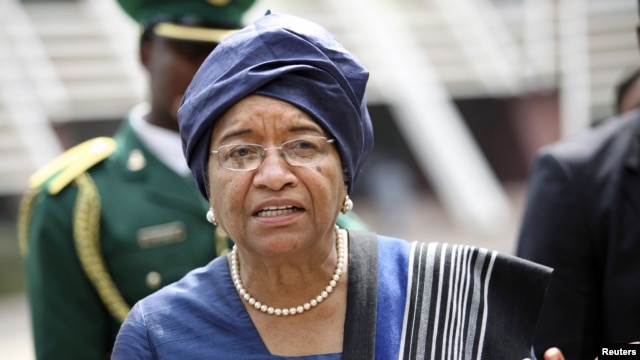Israel steps up fight against Ebola in Africa
Three teams of medical professionals, along with mobile emergency clinics, will be sent to West Africa.
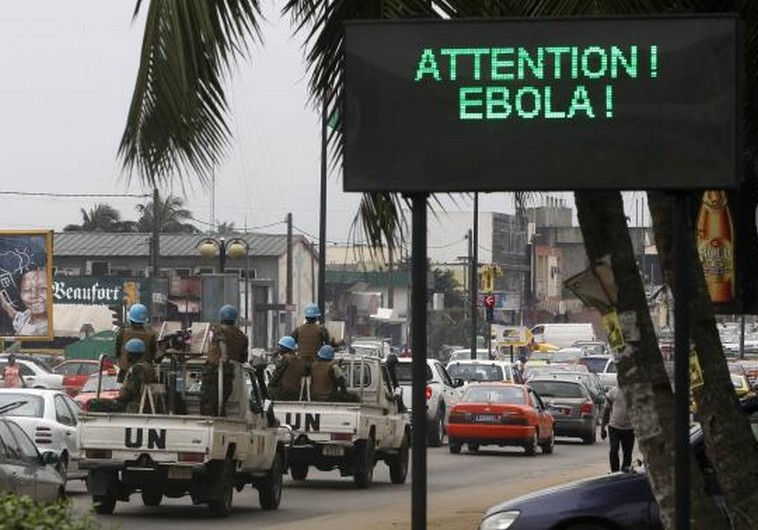
A UN convoy of soldiers passes a screen displaying a message on Ebola on a street in Abidjan.. (photo credit:REUTERS)
Israel, whose researchers are doing pathfinding work in the fight against Ebola fever that is spreading in Western Africa and beyond, will send three mobile emergency clinics to the region.
The Foreign Ministry’s MASHAV department, which is the Agency for International Development Cooperation, has decided to increase Israel’s contribution to the international effort to prevent the spread of the epidemic, the ministry spokesman said on Sunday.
MASHAV announced the decision in response to the requests by UN Secretary-General Ban Ki-Moon, the World Health Organization (WHO), many governments and Israeli and international aid organizations. The clinics, which were manufactured here, were built in accordance with the WHO’s standards and guidelines for the treatment of Ebola. A staff of medical experts to be attached to each clinic will train local medical staffers in the operation of the clinic and its equipment. In addition, staff training will focus on preventing the spread of the disease and raising awareness among populations with high potential for infection.
An Israeli team has already been sent to Cameroon, where it was favorably received by the local authorities. The ministry also sent emergency equipment to the government of Sierra Leone, and in recent weeks, it shipped personal protection equipment to teams of the African Union.
Asked to comment, Ben-Gurion University of the Negev Ebola researcher Dr. Leslie Lobel toldThe Jerusalem Post “This is great news. Finally, Israel is joining the righteous and helping out with Ebola.” The US-born researcher has for the last 12 years devoted himself to the study of viral diseases at BGU’s Health Sciences Faculty. Born in Queens, New York, he has an MD degree and doctorate in virology from Columbia University and studied the human immune response to cancer and developed human monoclonal antibodies.
He and his lab team in the faculty’s microbiology, immunology and genetics department, isolate and produce in the lab molecules that are naturally produced by the immune system in survivors, and they attach to the Ebola virus to inhibit infection. These are the antibodies that the body produces naturally as part of the immune system's response to the pathogens.
Lobel travels to Uganda five times a year and is the first to follow up Ebola fever survivors. A team from the US military, he said, has joined him “along with wonderful collaborators in Uganda," he said. “I protect myself with anti-malaria pills and antibiotics and meet with survivors who were infected at least three months before but survived and are healthy. I study their immune systems to find out why they survived and others didn’t,”: he explained. “I participate more as a scientist than as a physician for developing better diagnostics.”
The disease may be acquired upon contact with blood or bodily fluids of an infected animal, such as bats or monkeys, and it is not naturally transmitted through the air. Consumption of bush-meat is also believed to spread it.
Previously, Defense Minister Moshe Ya’alon turned down the idea of sending an Israel Defense Forces field hospital to Sierra Leone and Liberia; the Foreign Ministry decision therefore jumped in to cooperate. So far, more than 3,400 Africans have died of the infectious disease and it has spread to Western countries, including a first patient diagnosed in Texas.
Three teams of medical professionals, along with mobile emergency clinics, will be sent to West Africa.
A UN convoy of soldiers passes a screen displaying a message on Ebola on a street in Abidjan.. (photo credit:REUTERS)
Israel, whose researchers are doing pathfinding work in the fight against Ebola fever that is spreading in Western Africa and beyond, will send three mobile emergency clinics to the region.
The Foreign Ministry’s MASHAV department, which is the Agency for International Development Cooperation, has decided to increase Israel’s contribution to the international effort to prevent the spread of the epidemic, the ministry spokesman said on Sunday.
MASHAV announced the decision in response to the requests by UN Secretary-General Ban Ki-Moon, the World Health Organization (WHO), many governments and Israeli and international aid organizations. The clinics, which were manufactured here, were built in accordance with the WHO’s standards and guidelines for the treatment of Ebola. A staff of medical experts to be attached to each clinic will train local medical staffers in the operation of the clinic and its equipment. In addition, staff training will focus on preventing the spread of the disease and raising awareness among populations with high potential for infection.
An Israeli team has already been sent to Cameroon, where it was favorably received by the local authorities. The ministry also sent emergency equipment to the government of Sierra Leone, and in recent weeks, it shipped personal protection equipment to teams of the African Union.
Asked to comment, Ben-Gurion University of the Negev Ebola researcher Dr. Leslie Lobel toldThe Jerusalem Post “This is great news. Finally, Israel is joining the righteous and helping out with Ebola.” The US-born researcher has for the last 12 years devoted himself to the study of viral diseases at BGU’s Health Sciences Faculty. Born in Queens, New York, he has an MD degree and doctorate in virology from Columbia University and studied the human immune response to cancer and developed human monoclonal antibodies.
He and his lab team in the faculty’s microbiology, immunology and genetics department, isolate and produce in the lab molecules that are naturally produced by the immune system in survivors, and they attach to the Ebola virus to inhibit infection. These are the antibodies that the body produces naturally as part of the immune system's response to the pathogens.
Lobel travels to Uganda five times a year and is the first to follow up Ebola fever survivors. A team from the US military, he said, has joined him “along with wonderful collaborators in Uganda," he said. “I protect myself with anti-malaria pills and antibiotics and meet with survivors who were infected at least three months before but survived and are healthy. I study their immune systems to find out why they survived and others didn’t,”: he explained. “I participate more as a scientist than as a physician for developing better diagnostics.”
The disease may be acquired upon contact with blood or bodily fluids of an infected animal, such as bats or monkeys, and it is not naturally transmitted through the air. Consumption of bush-meat is also believed to spread it.
Previously, Defense Minister Moshe Ya’alon turned down the idea of sending an Israel Defense Forces field hospital to Sierra Leone and Liberia; the Foreign Ministry decision therefore jumped in to cooperate. So far, more than 3,400 Africans have died of the infectious disease and it has spread to Western countries, including a first patient diagnosed in Texas.

